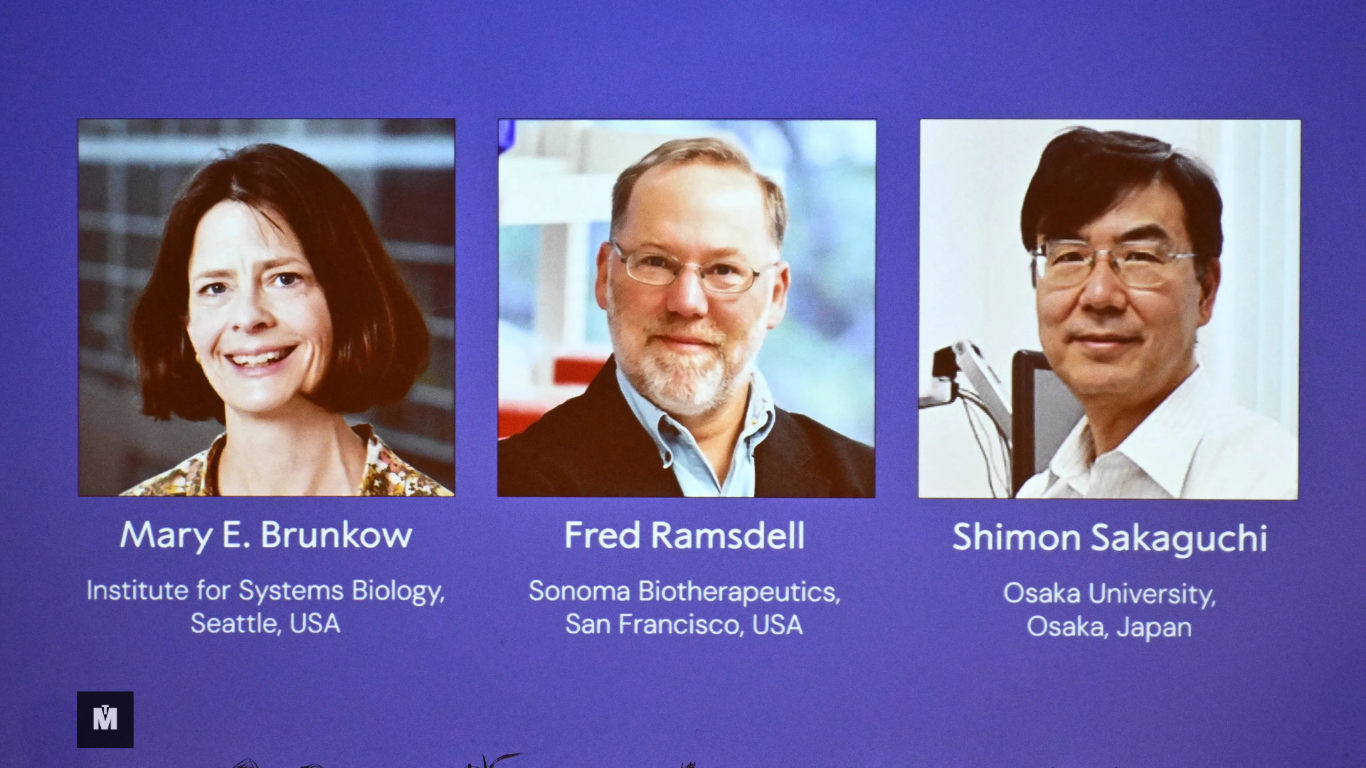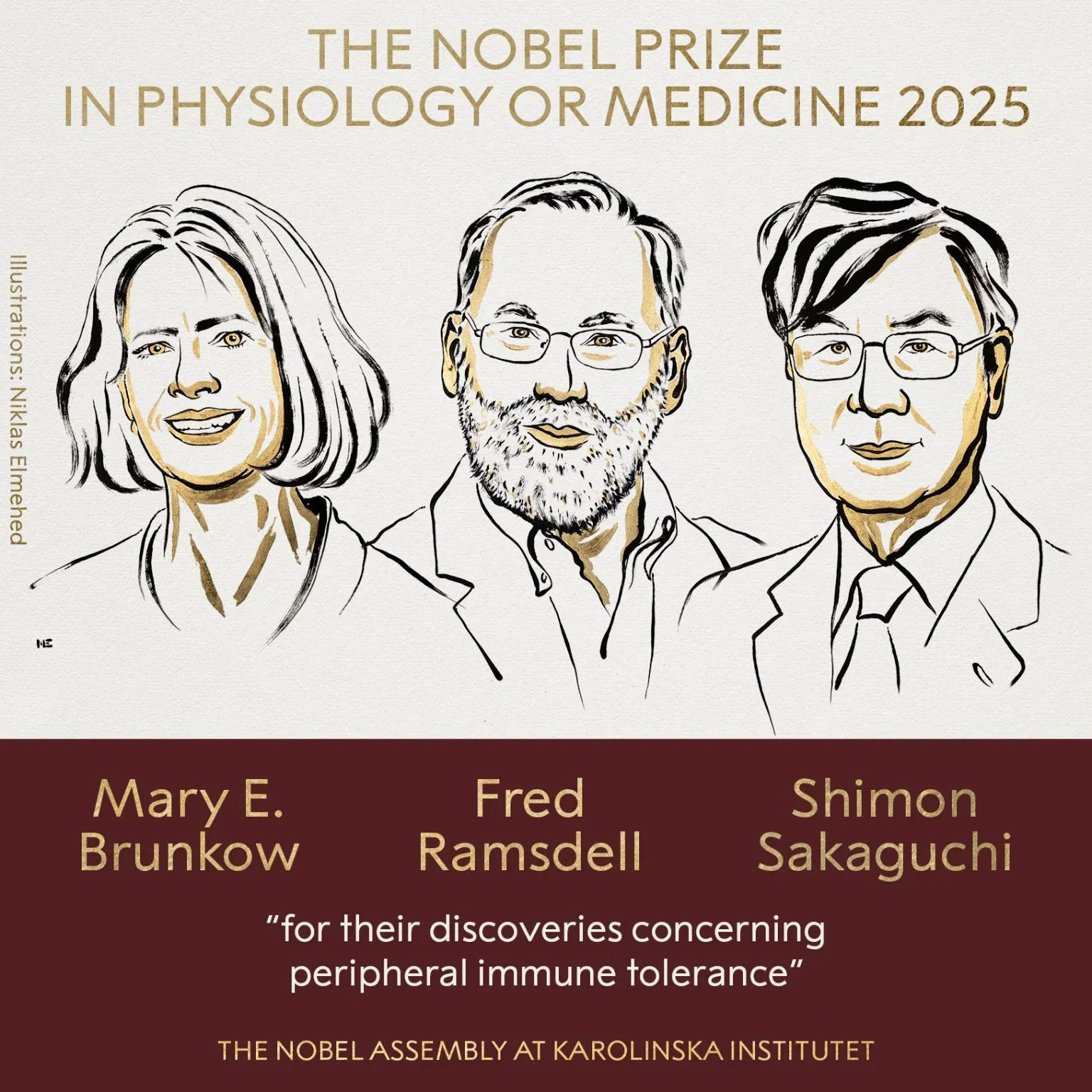Groundbreaking Discovery Wins 2025 Nobel Prize in Medicine: The Scientists Who Tamed the Immune System

A Historic Moment in Medical Science
The 2025 Nobel Prize in Medicine honors three extraordinary scientists — Mary E. Brunkow (USA), Fred Ramsdell (USA), and Shimon Sakaguchi (Japan) — for their pioneering discoveries that revealed how the immune system avoids turning against itself. Their groundbreaking research has transformed our understanding of autoimmune diseases and opened new doors for treatments that could save millions of lives.
The Discovery That Changed Immunology
At the heart of their work lies a process called peripheral immune tolerance, which ensures that our body’s defense system doesn’t mistakenly attack healthy tissues.
- Shimon Sakaguchi was the first to identify regulatory T cells (Tregs) — a special type of immune cell that acts as a “peacekeeper,” suppressing excessive or misdirected immune responses.
- Later, Mary E. Brunkow and Fred Ramsdell discovered the FOXP3 gene, a crucial genetic switch that enables these T cells to function properly. Without FOXP3, Tregs cannot develop, leading to severe immune dysregulation.
Their work proved that mutations in FOXP3 cause IPEX syndrome, a rare but devastating autoimmune disorder, confirming how essential these mechanisms are to maintaining immune balance.
Why It Matters
This discovery not only deepened our understanding of how the immune system maintains harmony, but also laid the foundation for new approaches to treat autoimmune diseases such as type 1 diabetes, multiple sclerosis, and lupus. The potential impact extends even further — from organ transplantation tolerance to cancer immunotherapy, where balancing immune activity is key.
The Legacy of Collaboration
What makes this Nobel Prize particularly inspiring is the collaboration across continents — between Japanese and American scientists — reflecting the global spirit of modern science. Their combined efforts exemplify how curiosity-driven research can lead to discoveries that redefine medicine.

Looking Ahead
As researchers continue to build on their work, therapies targeting regulatory T cells are becoming one of the most promising frontiers in medicine. The 2025 Nobel Prize is not only a recognition of past achievement but also a glimpse into a healthier future — one where the immune system can be precisely tuned rather than suppressed.
